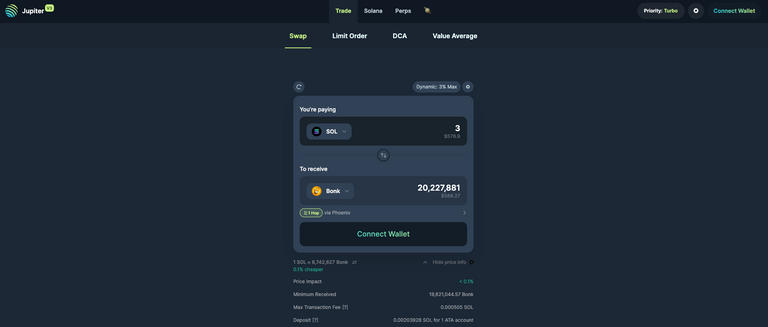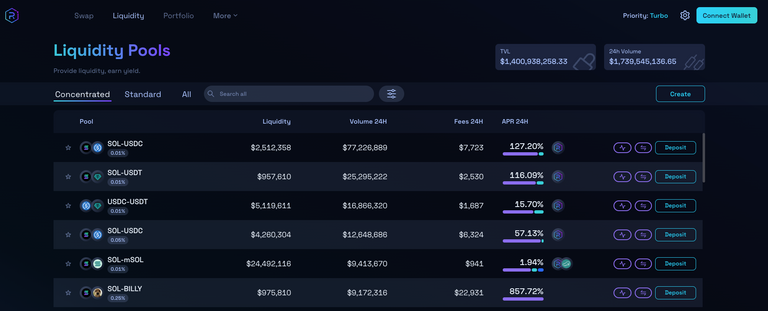Decentralized Finance (DeFi) is reshaping the financial landscape, offering a range of advantages that traditional systems cannot match.
As the ecosystem continues to evolve, with innovations addressing previous risks, DeFi's benefits and revolutionary aspects are becoming more pronounced.
I would like to explores these advantages, focusing on the latest developments in Solana and Ethereum DeFi protocols, and highlights the best strategies to maximize profits.

Leading Aggregator, Jupiter
Key Advantages of DeFi
1. Accessibility and Inclusivity
DeFi platforms are globally accessible, allowing anyone with an internet connection to participate in the financial system. This is particularly beneficial for individuals in regions with limited banking infrastructure, providing access to savings, loans, and investment opportunities.
Example: A user in a region without banking services can leverage DeFi platforms to save in stablecoins, invest in yield farming, or borrow funds using their digital assets as collateral.
2. Transparency and Security
The use of blockchain technology ensures transparency and security in all transactions. Smart contracts, which execute transactions based on coded rules, eliminate the need for intermediaries, reducing the risk of fraud and errors.
Example: On decentralized exchanges (DEXs) like Uniswap (Ethereum) or Orca (Solana), smart contracts automate trades, providing users with transparency and trust in the transaction process.
3. Financial Innovation and Customization
DeFi fosters a space for financial innovation, offering products like yield farming, staking, and liquidity mining that can be tailored to individual risk appetites and investment goals.
Example: Yield farming on platforms like Raydium (Solana) allows users to provide liquidity and earn returns in the form of trading fees and incentives, with the flexibility to choose different risk levels based on the liquidity pools they join.

Raydium Protocol
4. Lower Costs and Efficiency
DeFi reduces transaction costs by removing intermediaries. This efficiency is particularly beneficial for cross-border transactions, making them faster and cheaper compared to traditional methods.
Example: Transferring funds via DeFi platforms offers low fees and rapid transaction speeds, providing a more efficient alternative to traditional international wire transfers.
5. Control and Ownership
Users maintain full control over their assets in DeFi, unlike traditional financial systems where institutions hold custody. This self-custody model empowers users with greater autonomy over their finances.
Example: Holding assets in decentralized wallets like MetaMask (Ethereum) or Backpack, Phantom (Solana) gives users full control, eliminating the risk associated with centralized custody.
6. Open and Composable Ecosystem
DeFi's composability allows different protocols to interact seamlessly, enabling the creation of complex financial products. This openness drives innovation and provides users with integrated services.
Example: A developer can integrate liquidity pools from both Aave (Ethereum) and Solend (Solana) to build a cross-chain lending platform, offering users diversified borrowing options.
7. Censorship Resistance
Operating on decentralized networks, DeFi is less prone to censorship, providing a level of financial freedom and privacy not typically available in traditional finance.
Example: In regions with restrictive financial laws, users can still access and transact on DeFi platforms without government intervention, ensuring access to a full range of financial services.
8. Global Market Participation
DeFi enables global participation in financial markets, breaking down geographical barriers and providing access to a diverse range of assets and investment opportunities.
Example: Investors can trade tokens, invest in DeFi products, and participate in decentralized autonomous organizations (DAOs) from anywhere in the world, leveraging platforms.
Maximizing Profits in DeFi
Yield Farming and Liquidity Mining
Engage in yield farming and liquidity mining to earn passive income. By providing liquidity on platforms like Raydium (Solana) or Uniswap (Ethereum), users earn fees and token incentives.
Staking and Liquid Staking
Staking tokens on platforms like Marinade Finance, Jito (Solana) allows users to earn staking rewards while maintaining liquidity through derivative tokens like mSOL or jitoSol.
Leveraged Trading
Use platforms like Drift, Zeta, Mango Markets or dYdX for leveraged trading, allowing experienced traders to amplify potential returns. This strategy requires careful risk management due to the increased potential for losses.
Diversification
Diversify across multiple DeFi protocols and blockchain platforms to spread risk and capitalize on different market dynamics. This includes participating in DeFi on both Ethereum and Solana, as well as exploring emerging projects on other chains.
DeFi represents a significant advancement in financial technology, offering unprecedented accessibility, transparency, and innovation.
By leveraging platforms on Solana and Ethereum, users can maximize profits while enjoying the benefits of a decentralized and inclusive financial system.
As the ecosystem continues to grow, the opportunities within DeFi will only expand, providing more avenues for financial empowerment and investment.